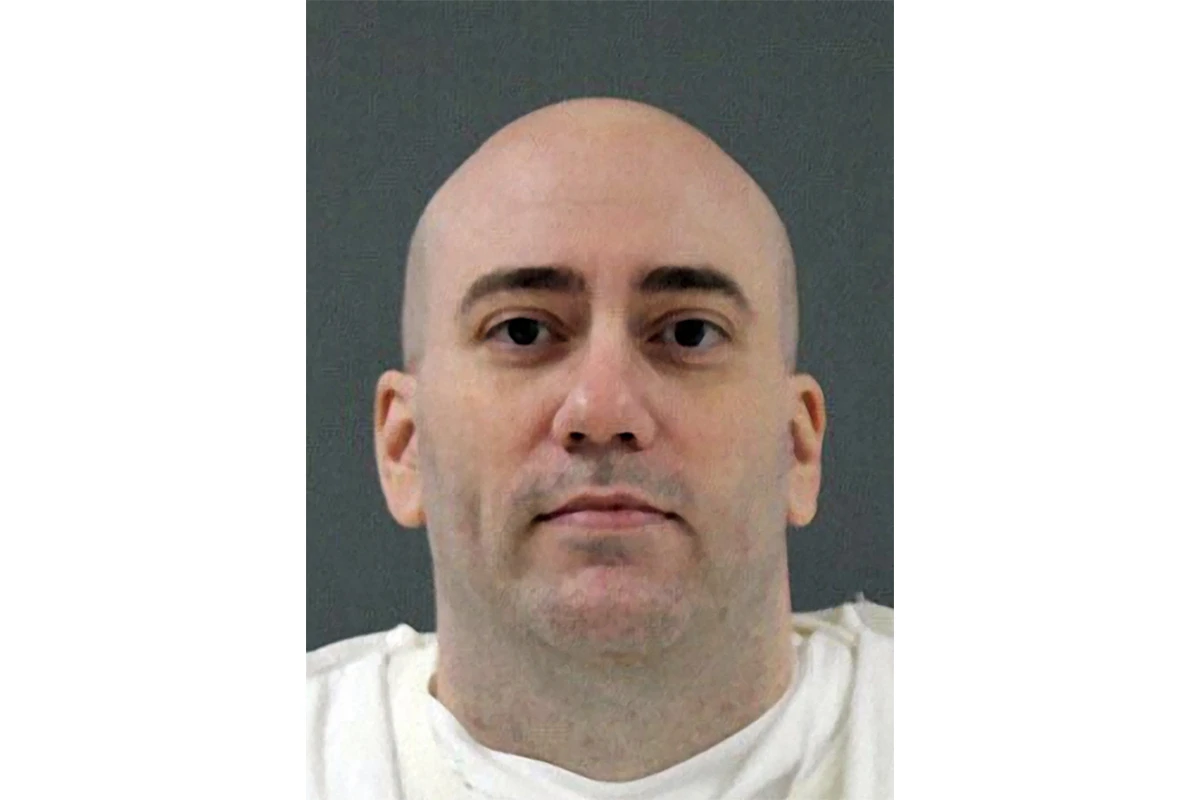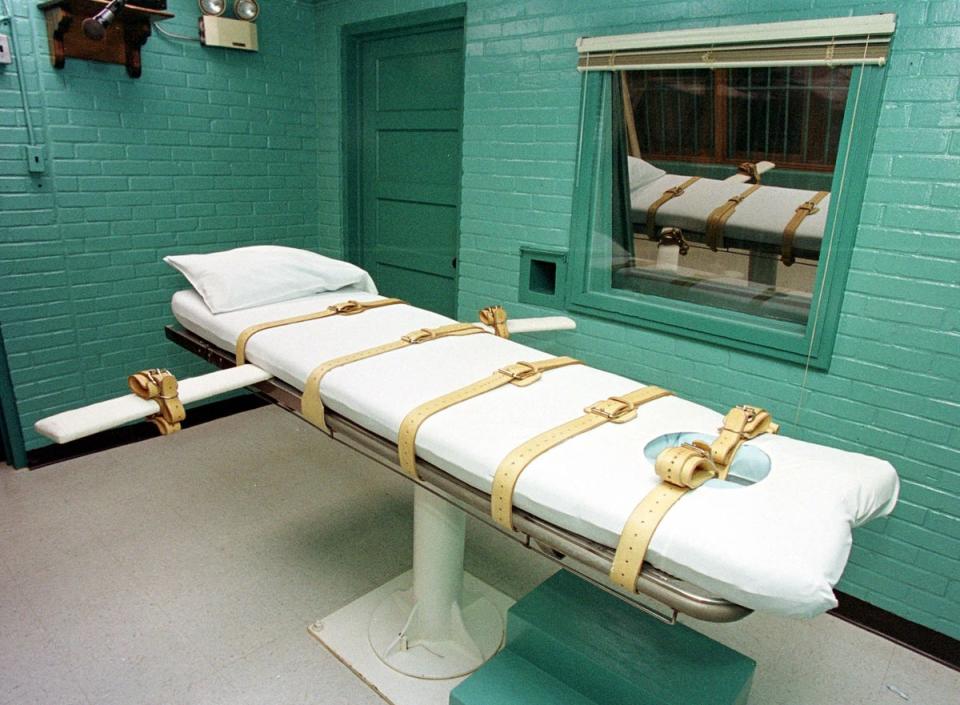Texas executes death row inmate over 2000 carjacking murder hours after order of stay was overturned

A death row inmate in Texas was executed hours after an order that delayed his death was overturned, despite his attempts to change his fate by questioning evidence set against him.
Jedidiah Murphy, 48, was pronounced dead on Tuesday after he was given a lethal injection at the state penitentiary in Huntsville, Texas.
Murphy’s execution makes him the sixth inmate who has died due to the death penalty and the 20th in the US in 2023.
He was executed for the fatal shooting of an elderly woman, Bertie Lee Cunningham, in the Dallas suburb of Garland, during a carjacking in April 2000.
He allegedly forced Cunningham, 79, to give him a ride while he held her at gunpoint, then forced her into the trunk of the car and shot her while she was getting in. He then allegedly drove her car and removed the victim from the trunk to drown her in a creek. He then used her credit cards to buy alcohol and cigarettes, according to the Texas Department of Criminal Justice.
“To the family of the victim, I sincerely apologise for all of it,” Murphy said while he was strapped to a gurney, before his planned death. “I hope this helps, if possible, give you closure.”
A Christian pastor was present with Murphy and had his right hand placed on the inmate’s chest while he prayed for him, his family and the victim’s family.
He told the warden he was ready, then turned towards a friend who was behind a window and said, “God bless all of y’all. It’s OK. Tell my babies I love them.”
Then he shouted out, “Bella is my wife!”
He was given a lethal dose of pentobarbital, a drug that is often used as a sedative, but also used in euthanasia and the death penalty administrated in high amounts.
The inmate took two breaths before he appeared to go to sleep. The pastor who was with him placed his left hand over Murphy’s heart until around 20 minutes and a physician entered the room.
The physician pronounced him dead at 10.15pm, 25 minutes after the drug was administered.
Leading up to his death, Murphy had made many attempts to stay his execution.
Murphey’s attorneys filed a lawsuit over evidence around a kidnapping and two robbery charges alongside the killing of Cunningham. This allowed his execution to be delayed by a federal judge’s order and was upheld by the 5th US Circuit Court of Appeals.
For the death penalty to be bestowed in Texas, Murphy would need to be seen as a future danger. The subsequent charges were used as a persuasion for jurors to decide on execution in his trial.
While Murphy has admitted to killing the woman, he has fervently denied that he committed the robberies and the kidnapping.

His attorneys claimed that the evidence that was given for these crimes was problematic and that Murphy’s identification by one victim was dubious.
They requested that DNA testing of this evidence should be performed, but prosecutors argued that testing is only allowed by the state during a guilty or innocent verdict, rather than for penalties.
They also said they had “significant other evidence” to suggest Murphy was a future danger.
The 5th Circuit said another case, before this one, was filed by a different Texas death row inmate that raised similar issues, so it was best for that initial one to be resolved before a ruling was given on Murphy’s.
The state attorney general’s office appealed the 5th Circuit’s decision, so the Supreme Court ruled that his execution could take place mere hours before Murphey was then given the lethal dose.
“A capital inmate who waits until the eleventh hour to raise long-available claims should not get to complain that he needs more time to litigate them,” the attorney general’s office wrote in its petition to the high court.
However, his attorneys tried one last time to stop his death penalty within the hours before his death and argued that the drug he would be injected with could be possibly damaged in a fire at the Huntsville prison on 25 August.
The Supreme Court denied this request without giving further comment.
Murphy’s death fell on World Day Against the Death Penalty, an annual day to raise awareness of the campaign for the abolishment of the death penalty.

